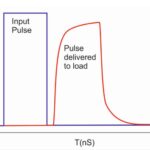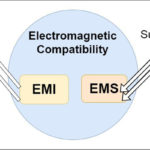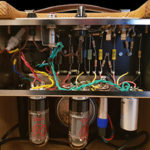 SABIC introduced three new LNP CRX copolymer resins to give customers in the mobility and industrial sectors new material options that can resist both harsh chemicals and challenging environmental conditions. The new specialized polycarbonate (PC) copolymer-based LNP CRX products deliver the chemical resistance expected from this portfolio, in combination with exceptional weather ability (UL74C F1 rating, low-temperature ductility, and ability to withstand high levels of heat and humidity). These properties may help enhance the durability of components such as charging sockets for electric vehicles (EV) and housings for outdoor battery storage equipment.
SABIC introduced three new LNP CRX copolymer resins to give customers in the mobility and industrial sectors new material options that can resist both harsh chemicals and challenging environmental conditions. The new specialized polycarbonate (PC) copolymer-based LNP CRX products deliver the chemical resistance expected from this portfolio, in combination with exceptional weather ability (UL74C F1 rating, low-temperature ductility, and ability to withstand high levels of heat and humidity). These properties may help enhance the durability of components such as charging sockets for electric vehicles (EV) and housings for outdoor battery storage equipment.
In turn, greater durability helps to extend the useful life of parts, thereby advancing sustainability goals through lower demand for raw materials, energy, water, and other resources. It also helps customers protect their brand reputation and minimize costly recalls and warranty claims. Because of these durability and sustainability benefits, the new additions to the LNP CRX copolymer resin portfolio can be great options for applications across several market sectors, including healthcare and consumer electronics.
The signature property of all LNP CRX copolymer resins is high resistance to aggressive chemicals. In fact, the first grades in the portfolio offered enhanced chemical resistance for medical devices exposed to repeated cleanings with aggressive disinfectants. However, this growing family of LNP CRX resins is also resistant to motor oil, gasoline, turpentine, caustic soda, and brake fluid used in the mobility sector; industrial chemicals such as brake fluid and tar remover; and lotions, sunscreen, hand sanitizers, and skin oils that affect consumer electronics devices. These amorphous copolymer resins often deliver chemical resistance comparable to that of crystalline materials, such as flame retardant (FR) polycarbonate/polybutylene terephthalate (PC/PBT) blends, and can surpass the performance of other amorphous resins such as FR PC and impact-modified FR polycarbonate/acrylonitrile-butadiene-styrene (PC/AB) blends.
In addition, all LNP CRX grades provide non-brominated/non-chlorinated flame retardancy and good processability for both injection molding and extrusion. They meet both ultraviolet (UV) and water immersion requirements (F1 rating) for outdoor suitability under UL 746C.
SABIC’s three new LNP ELCRES CRX grades, which provide low-temperature ductility (down to -60°C) and an F1 rating, include:
LNP ELCRES CRX9416U copolymer resin. This upcoming product is planned for commercialization later in 2023. It is an injection molding grade offering UL94 V0 compliance at 1.5 mm, and heat resistance of 145°C, as measured by Vicat B/120 (ISO 306). It will be custom colorable with an all-color UL Solutions Yellow Card.
LNP ELCRES CRX9016E copolymer resin. This new grade, available in black color, is formulated for extrusion processing. It provides UL94 V0 compliance at 1.5 mm, low shrinkage, long-term ductility, and heat resistance of 145°C, as measured by Vicat B/120 (ISO 306). It was commercialized in early 2023.
LNP ELCRES CRX7416U copolymer resin. Introduced in 2022, this custom-colorable, injection molding grade provides UL94 V0 compliance at 1.0 mm and very high flow properties (MVR of 13 g/10 min.), potentially enabling designs with thinner walls and complex geometries to reduce material usage. This product has a lower heat resistance than that of the other two grades (131°C, as measured by Vicat B/120 (ISO 306)).
Bio-based versions of these materials, supplied under the LNP ELCRIN CRX brand, provide equivalent performance to fossil-based grades. They use renewable feedstock derived from non-fossil waste materials that do not compete with the food chain and are certified under ISCC PLUS. These bio-based grades can reduce carbon dioxide (CO2) emissions by up to 38 percent compared to the fossil-based versions.





